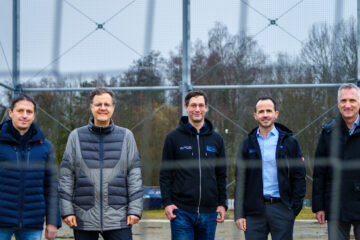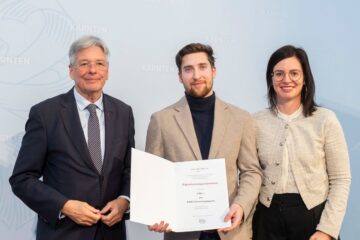
This work presents an approach for energy efficient path planning during autonomous mobile robot exploration. The idea is for a robot to efficiently explore the environment and periodically return to the starting point of the exploration for recharging the battery. The focus is to reduce the overall travel path as locomotion is the largest energy consumer.
Mobile robots can be employed for many scenarios. These are reconnaissance, coverage, search and rescue, and planetary missions, to name a few. In most cases, robots have to explore and map the previously unknown environment before continuing their mission. This has to be done autonomously due to either physical distance, life threatening environments, or a large number of robots.
For fully autonomous exploration, a robot needs to plan the path through the environment based on the current energy level as well as interrupt exploration for recharging the batteries. The path planning is done online and behavior based since no optimal plan can be precomputed for an unknown environment. The contribution of this work is an energy-aware exploration strategy that takes into account efficient path planning based on the current battery level as well as timely recharging of batteries for larger maps.
The path planning uses frontier based exploration, where a robot identifies points in a two-dimensional environment that separate known and unknown space. These points are called frontiers. Selecting the frontiers in the right order is a crucial process as it defines the path on which a robot travels during exploration. This path should be as short as possible. Redundancies, where the robot visits certain points in the environment more than once, should be avoided. We derive a general strategy that reduces the redundancy of the traveling path considerably.
We use an adaptive threshold for the robot to decide when to return to the docking station for recharging. This threshold depends on the movement of the robot, its power consumption, and the current state of the environment. We show by simulations that our strategy helps to reduce redundancy in traveling and increases the efficiency of exploring unknown environments. Additionally, a proof of concept is developed to show the feasibility on hardware.
Publication
Micha Rappaport:
Energy-Aware Mobile Robot Exploration with Adaptive Decision Thresholds.
In Proc. International Symposium on Robotics, Munich, Germany, June 2016.
This blog entry is strongly based on the introduction of the mentioned paper.




